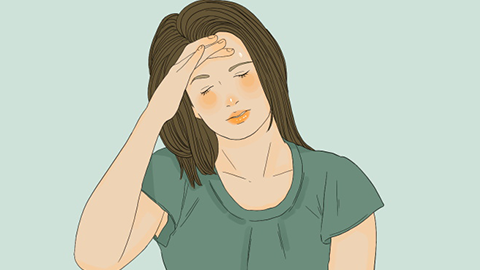What could be causing heat intolerance, excessive sweating, and lower back pain?
Heat intolerance, excessive sweating, and lower back pain may be caused by hot environments, intense physical activity, consumption of spicy foods, hyperthyroidism, lumbar disc herniation, pyelonephritis, and other conditions. These symptoms can be improved by adjusting the environment, improving diet, medication, physical therapy, and other methods. If symptoms persist or are accompanied by fever or abnormal urination, prompt medical attention is necessary.
1. Hot Environment and Intense Exercise: Prolonged exposure to high temperatures or engaging in vigorous exercise increases body heat production, leading to profuse sweating for heat dissipation. Exercise may also cause strain or injury to the lower back muscles, resulting in pain. It is recommended to move to a cool, well-ventilated area, reduce intense physical activity, replenish fluids promptly after exercise, and apply heat therapy to the lower back to relieve soreness.
2. Spicy and Stimulating Diet: Regular consumption of spicy foods such as chili peppers and Sichuan pepper can accelerate blood circulation, causing heat intolerance and excessive sweating. Some individuals may also experience referred pain to the lower back due to gastrointestinal discomfort. It is advisable to adjust the diet by reducing intake of spicy foods, consuming more light and easily digestible fruits and vegetables, and drinking plenty of water to promote metabolism.

3. Hyperthyroidism: Excessive secretion of thyroid hormones accelerates the body's metabolism, increasing heat production and leading to heat intolerance and excessive sweating. Muscle tension in the lower back may also occur, contributing to back pain. Additional symptoms may include palpitations and hand tremors. Under medical guidance, medications such as methimazole tablets, propylthiouracil tablets, and propranolol tablets may be used to manage symptoms.
4. Lumbar Disc Herniation: Degeneration or injury of the intervertebral discs can cause the nucleus pulposus to protrude and compress nerve roots, resulting in lower back pain that may radiate to the legs. Some patients may experience heat intolerance and excessive sweating due to pain-induced stress responses. Under medical supervision, medications such as celecoxib capsules, mecobalamin tablets, and mannitol injection may be prescribed to alleviate symptoms.
5. Pyelonephritis: Bacterial infection of the renal pelvis causes inflammation, which leads to lower back pain. The infection can also trigger systemic symptoms such as fever, heat intolerance, and excessive sweating, along with urinary frequency and urgency. Under medical guidance, treatment may include antibiotics such as levofloxacin injection, ceftriaxone sodium injection, and sodium bicarbonate tablets to relieve symptoms.
Daily care includes maintaining a comfortable indoor temperature, wearing loose and breathable clothing, avoiding prolonged sitting or standing, protecting the lower back, eating a light diet low in spicy foods, drinking sufficient warm water, and performing appropriate exercises to strengthen the back and core muscles.







